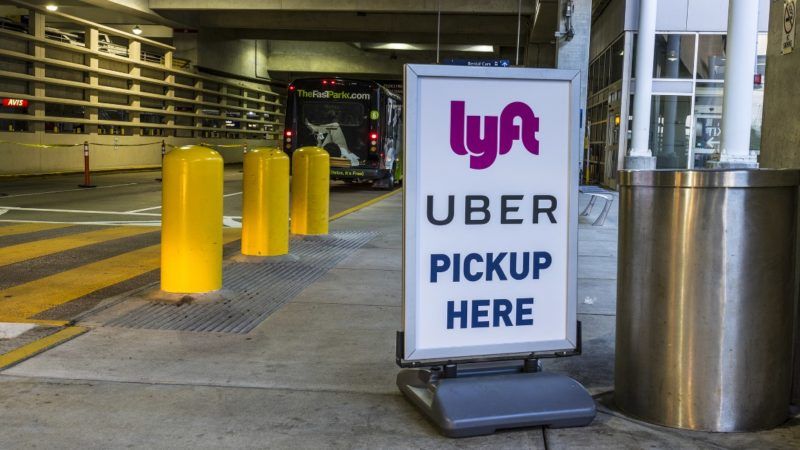Lyft, Uber Get Last-Minute Reprieve Before They Would Have Canceled Services in California
Lawmakers and courts are trying to force them to put drivers on their payrolls. They're threatening to take a freeway out of the state entirely.

Rideshare services Lyft and Uber—and more importantly their freelance drivers and customers—dodged a bullet today as a judge decided to allow to companies to continue classifying their drivers as independent contractors while a court battle wages on.
Both companies publicly announced that they would be ending their services in California rather than complying with legislation (the controversial A.B. 5) and a recent court ruling ordering them to classify their drivers as employees by Friday.
Uber officials had warned that complying with the law would drive costs up so much that consumers could end up paying as much as 111 percent more for rides in some places. In a blog post from Lyft today explaining they'd be shutting down, they said the changes would result in 80 percent of their drivers losing work in California and passengers seeing reduced services in suburban and rural areas.
And so, facing an intractable California government lobbied heavily by labor unions and hostile to a freelance economy, Uber and Lyft threatened to take their balls and go home.
Today's ruling will delay the classification order and will allow them to continue operating until at least mid-October, where they'll continue to attempt to argue in court that they should not have to treat drivers as conventional employees. They will, however, also have to submit plans to the court explaining in advance how they plan to comply with the ruling should they lose.
"We are glad that the Court of Appeals recognized the important questions raised in this case, and that access to these critical services won't be cut off while we continue to advocate for drivers' ability to work with the freedom they want," an Uber spokesman said in a prepared statement.
California voters will get to weigh in themselves come November about whether these drivers can remain independent. Proposition 22 would exempt rideshare and delivery drivers from A.B. 5. Instead it would implement some other measures for freelance drivers like an earnings guarantee for time worked, compensation per mile, and health care subsidies.
In exchange, drivers will get to keep the ability to set their own hours and be their own bosses. This is what many freelance workers actually want and rely on this flexibility as part of their livelihoods. Read more about the terrible impacts of A.B. 5 on the work of freelancers and why people want to be their own bosses and not embrace typical employer-employee relationships in the August/September issue of Reason here.


Show Comments (74)